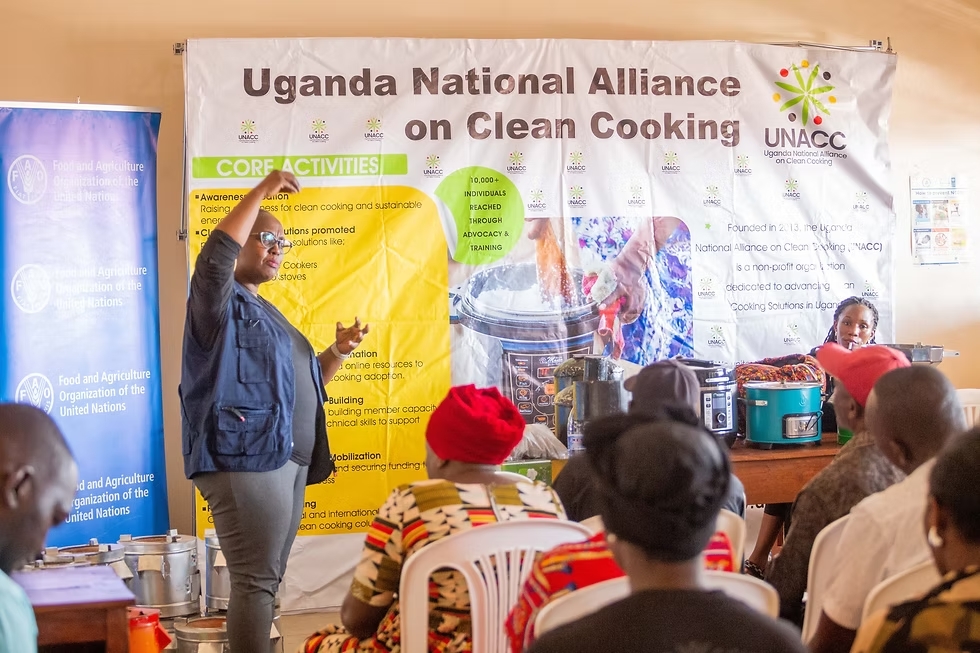Despite increasing urbanization and greater access to electricity, only 10 percent of Ugandans have adopted clean cooking technologies.
This low uptake highlights the urgent need for a nationwide shift in how households prepare their meals.
Sarah Babirye, Project Manager at the Uganda National Alliance on Clean Cooking (UNACC), attributes the limited adoption to several factors.
These include the high cost of clean cooking equipment, low public awareness, and widespread misconceptions about the effectiveness and affordability of modern cooking methods.
She explained that in Kampala, where approximately 80 percent of households are connected to the electricity grid, only 1 to 2 percent uses electricity for cooking.
Many people believe electric cooking is either too costly or inefficient, while others remain unaware that such technologies are available and viable for daily use.
Babirye stressed the urgent need to transition away from solid biomass fuels such as charcoal and firewood.
Currently, 88 percent of Ugandans still rely on these traditional sources, which contribute heavily to indoor air pollution, environmental degradation, and serious health risks, especially among women and children.
She also cited statistics showing that an estimated 23,000 Ugandans die annually due to health conditions linked to exposure from traditional cooking methods.
According to Babirye, UNACC’s main goal is to improve access to clean cooking technologies and increase public understanding of their benefits.
The alliance aims to protect public health, preserve the environment, and contribute to national sustainable energy targets.
Babirye made her remarks during the 4th Annual Women in Climate Change Conference, held at the Makerere University Business School (MUBS) grounds.
She called on stakeholders from government, civil society, and the private sector to collaborate in overcoming the barriers that continue to slow down the adoption of clean cooking.
Sarah Kezia Nambalirwa, a mentor with Women in Climate Change, emphasized that although the government has introduced strong policies to protect the environment, the biggest challenge lies in how communities interpret and respond to these policies.
She noted that many people misjudge or misunderstand government initiatives, even when clean cooking technologies are subsidized or provided at minimal cost.
Nambalirwa explained that empowering people through income-generating activities can enable them to afford these technologies and take ownership of the shift toward cleaner energy practices.
She concluded by urging continued community education and engagement to support the long-term adoption of clean cooking solutions across Uganda.
By Ben Musanje
24th July 2025
END

